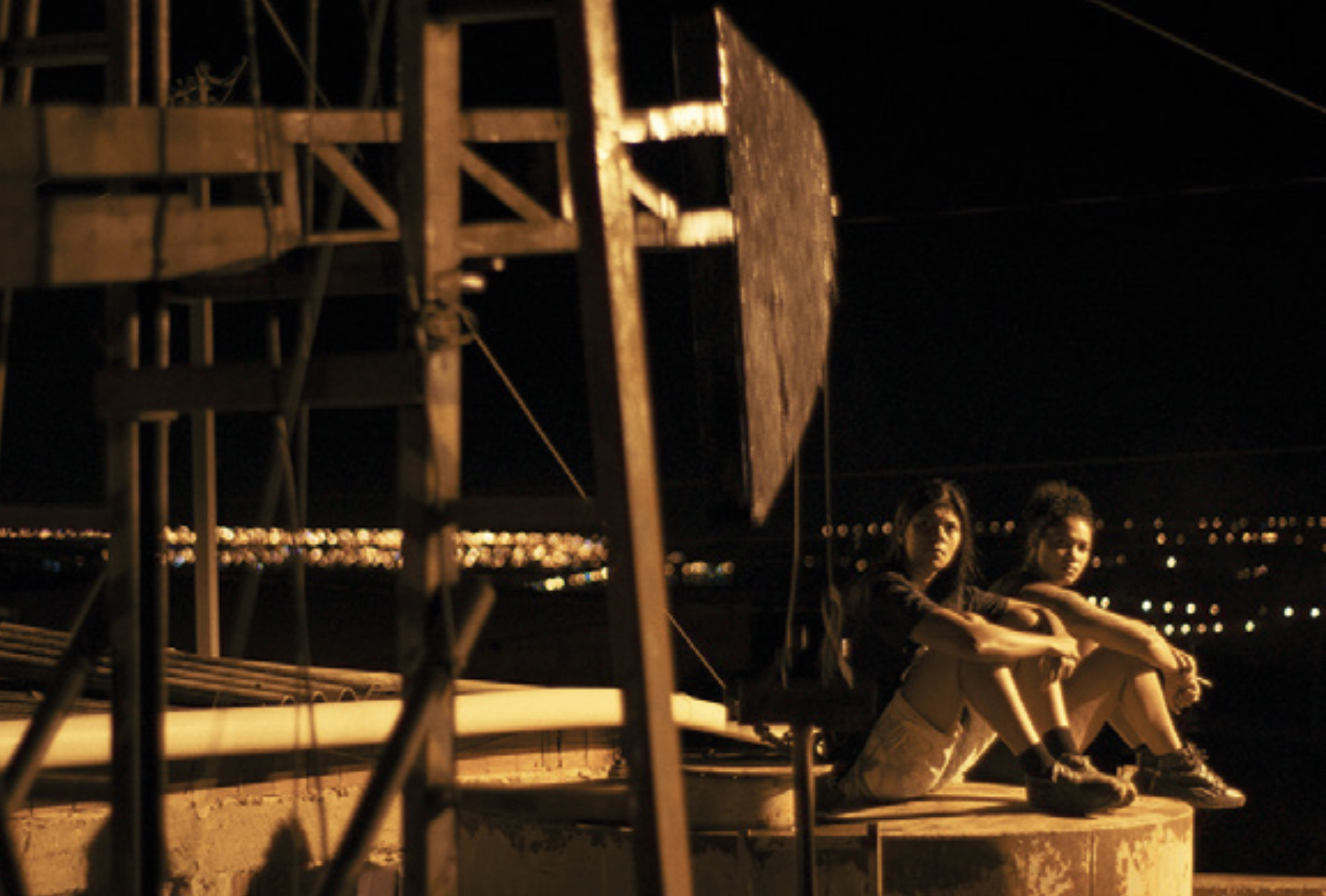Mato seco em chamas (Dry Ground Burning)

“I was remembering the time... That I got wrapped up in some crazy shit with my sister Chitara. My sister made history in Sol Nascente. That was in 2019. I’d just got out of prison for drug charges. My sister asked me to be a part of this crazy scheme she was caught up in. She got a hold of a map of underground oil pipes. She got it and then... she bought a lot in Sol Nascente. The oil pipes ran right under her land. She started making a lot of money with that. Her, Andreia, China... They made a lot of money. So I started working with them. She took me to the lot, where she built a huge structure. Really huge, it was crazy, dope as hell. She taught me how it all worked... how to get the oil from underground, and turn it into gasoline, and all that shit... And she set up a deal with the motoboys, they would buy gasoline from her... she refined the gasoline there, and they bought it off her... Besides the motoboys, Chitara also had a spot at the P.Norte market a stand where she sold her gasoline. And a bunch of other shit. Chitara also got mixed up in politics. She made history... We had Sol Nascente on lock, we fucked things up. We really fucked things up.”
Léa tells the story of the Gasolineiras de Kebradas, as it echoes through the walls of Colmeia, the women’s prison of Brasilia, Federal District, Brazil.
Deze verbluffende mix van documentaire en speculatieve fictie is als een door de bliksem geleid bericht uit hedendaags – en misschien toekomstig – Brazilië. Dry Ground Burning vindt plaats in de bijna postapocalyptische omgeving van Sol Nascente, een favela in Brasilia. De gevreesde outlaw Chitara (Joana Darc Furtado) leidt er een volledig uit vrouwen bestaande bende die kostbare olie wegsluist en steelt van de autoritaire, gemilitariseerde regering. Haar zus Léa (Léa Alves da Silva) die onlangs werd vrijgelaten uit de gevangenis, wordt geïntroduceerd in de criminele onderneming. Queirós en Pimenta (die de DOP was van Queirós’ etnografische sciencefictionfilm Once There Was Brasilia, vorig jaar vertoond op Courtisane festival) werken voor het eerst samen als regisseurs en combineren moeiteloos een gedramatiseerd narratief met zinderend gefilmd beeldmateriaal, waarbij de personages worden geïntegreerd in betogingen tegen Bolsonaro en fervente religieuze diensten. De vorstelijke Furtado en da Silva, die alternatieve versies van zichzelf spelen, torenen boven alles uit als de volledig bevrijde sterren van een epische, hoopvolle visie. (NYFF)